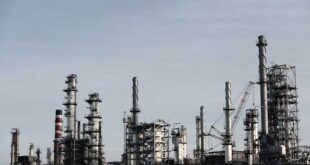When Russia went to Syria, the target was to control a strategic stretch of the east Mediterranean coast at a minimum cost. It was clear in the past few months that the Syrian crisis will boil down to either a partition a la Taif deal in Lebanon, that is a partition “sans” partition, i.e. cutting and pasting the component of a “single” government where each party is given a corner, or an outright partition with de facto borders and crossing points. In either case, the west coast would remain under the control of the Alawi minority. Russian-Alawi ties are necessary in order to keep and expand Russia’s presence in the strategically important and energy rich East Mediterranean.
However, the Russian discourse used to explain Putin’s move contains some alarming points. Publicly, Moscow said that the decision is based on an invitation by the “legitimate” government of Syria (The Assad’s government) and it aims at fighting ISIL. The director of the Institute of Oriental Studies, Russian Academy of Science Vitally Naumkin wrote recently that as there is already a coalition fighting ISIL, Russia has been calling for broadening this coalition because, according to him, ISIL is a national threat to Russia’s security.
“One shouldn’t link Moscow’s plans to continue providing assistance to Damascus to Tehran’s plans. Iran is pursuing its independent policy toward the Syrian crisis, guided by its own national interests” Mr. Naumkin tells us.
But this is a thin argument for those who know the extent to which Iran is present in Syria. UN envoy to Syria Staphan de Mistura told the press last June that he estimates that Iran may be providing Assad with over $6 billion annually. Units of the IRGC are visibly everywhere in the areas under Assad control. Furthermore, there are very recent reports from the ground in Syria that Iranian regular army units were sent during the last week to certain positions around Latakia.
According to Iranian media reports, Tehran almost immediately established an alternative air corridor to replace the one that goes through Greece and Bulgaria’s air space. The two countries closed their airspace to Russian military planes upon request from the US.
It is difficult to see how Moscow’s decision to help Assad could be separated from Tehran’s plans. Yet, there are more profound reasons to reject the call of some strategists in the West for “cooperating with Moscow in the war against ISIL”.
If we examine carefully Russia’s justifications of why it sent troops to Syria, we will find out that Moscow’s argument in the case of Syria could also be valid in the case of Iraq. All the elements provided to explain Putin’s decision in one case are abundantly available in the other. The legitimate government in Baghdad can also “invite” the Russians to fight ISIL there. The Russians can say then that they thought that there is a need for a wider coalition to fight what they see as a national security threat. Iran backs the Iraqi government as much as it backs the Syrian’s.
The comparison shows clearly that when President Obama deliberately reduced the US leverage in the two connected crisis he was paving the road for the Russians to go first to Syria, then maybe later to Iraq, based on the same logic presented as a base for Putin’s bold step on the Syrian coast.
Admittedly, Syria, as seen from the Russian strategic interests, is different from Iraq. Yet, even from Moscow’s perspective, Iraq is an important energy producer and it can place the Russians in a controlling position over the Gulf region. As the same argument used to justify Putin’s bold move in Syria could also be used in Iraq, almost without modification, it should be asked why the Russians will abstain from making a similar move in Iraq.
This is placed here to debunk the argument that Russia should be allowed to get a free pass in Syria. Such an argument will have consequences that transcends the fight against ISIL. It simply helps the Russians legitimize their military intervention in areas vacated, in various forms, by the US. In other words it makes the replay of Crimea possible but without any political or economic repercussions for Moscow.
(Refusing the foundation of Putin’s argument in the case of Syria should not however lead automatically to rejecting any Russian contribution in the fight against ISIL. In another piece of this issue of Middle East Briefing we explained how we see the way Russia’s help could be approached and trimmed to fit a healthy context to restore stability in the region. Leaving Putin’s step as a stand-alone individual measure without trying to absorb and restrict it within a broader multi-lateral effort to fight ISIL will produce more menacing future steps).
And Russia is no stranger to Iraq. As recent as this summer, Moscow was working actively to expand its ties with Baghdad. Iraq’s Prime Minister Haider Al Abadi was received in the Kremlin in May to talk Russian arms deals. One official in the Iraqi delegation explained Baghdad’s view by saying that it is faster, easier and cheaper to buy Russian arms. Russia offered more “deferred” methods and flexible models of payment. It also promised prompt delivery and almost free training.
By the end of July, Iraqi Defense Minister Khalid al-Ubaydi, who was visiting Russia then, and Alexander Fomin, the head of the Russian Federal Service on Military-Technical Cooperation (FSVTS) signed an agreement on military-technical cooperation between Russia and Iraq, Ubaydi said.
“The document was signed in the federal-level city of St. Petersburg,” the Iraqi Defense Ministry said in a report posted on its website. The report is accompanied by photos from the ceremony of the signing the deal.
Abadi criticized in several occasions, including while he was here in Washington last April, the limited scope of the US air raids against ISIL. It is true that the US adopted a prudent policy in its approach to the Shia militias in Iraq. However, Moscow is not strained by similar sophistication in its approach to these militias. Furthermore, Qassem Suleimani, the de facto commander of these militias was in Moscow during the last week of July. Suleimani, who leads the IRGC Quds Brigades, did not comment on his widely reported visit. Moscow asked “Who?” and Iran denied.
Putin’s next step, after Syria, may well be Iraq.
While it is far from certain that Russia will manage to have a happy ending to its new intervention in the Middle East, nonetheless this policy should be opposed. The moment it is accepted is the moment the next Russian step would start gathering steam. President Putin’s quick resort to military force will complicate the regional crisis which is maddeningly intricate and rich with latent nuanced forces. The Russian military hammer is anything but sophisticated.
Yet, if opposing this policy is only based on verbal condemnation and sincere warnings of the nature of the regional crisis, it will fall on deaf ears in both sides, Washington allies and the Russians. It was indeed the lack of any meaningful Western strategy that produced the footage of heavy Russia equipment deployment in Syria.
And that is precisely where the self-contradictions of Mr. Naumkin’s not-very-convincing argument lies. The main weakness of Russia’s strategy is found actually in Mr. Naumkin claims that Russia’s decision to go to Syria is only directed against ISIL and no one else. But whatever the aim is, the implications of Mr. Putin’s decision will appear when we look differently at this seemingly mono-sided objective.
Fighting ISIL means several things. Assad, who ordered his forces to shoot at peaceful protestors in the beginning of the Syrian revolt, says now that he is fighting the opposition because it is made of terrorist groups. Iran, which is currently busy in redrawing the sectarian map of Syria, says it is fighting ISIL because it loves to fight terrorism. However, both systematically rejected any political solution based on establishing a wide Syrian coalition which puts the Syrian army side by side with most of the non-ISIL opposition groups to fight and defeat ISIL. It is self-evident that fighting ISIL is merely the code name of an agenda that existed before ISIL existed in Syria.
The terrorist organization will not be defeated by the Russians, the Americans, the Iranians, an exclusively Alawi government or even a mix of all those combined. It will be defeated only by the majority of the Syrian people with assistance from all friendly powers. In fact, the only time a similar group was defeated, in almost similar circumstances, was in 2007 when the US troops established the “Sahwa” in Iraq of members of Sunni tribes and gave them a prominent role in confronting Zarqawi’s Qaeda.
When Mr. Naumkin, or anyone else, claims that fighting and defeating ISIL is possible by the Russians, or by an alliance between them, Iran and Assad, and if we believe his assertion at face value, he reveals his misunderstanding of the nature of this enemy, , much as it was revealed during the Afghan war. ISIL is not only a defined, measurable and distinct entity. It is very much mixed with the “cause” of most Sunnis in Syria-Getting rid of Assad who caused them all this pain. It also exists in an immaterial forms in the mind of people deprived of most of their rights, and primarily the right to know different views hence to think critically.
No one can surgically separate ISIL from that “cause”, then, after this separation is accomplished, bomb it comfortably-that is if we buy Mr. Naumkin’s assertion that the only objective is to defeat ISIL. For if the goal is “only” that, you have to have “only” your specific enemy on crosshair separated from all else. But how can we separate ISIL from the objective ground that it occupies in the Syrian crisis? This objective ground has also the majority of Syria’s Sunni and all those who fought, really fought, against ISIL.
Therefore, it boils down to two distinctive options: Either to take Mr. Naumkin’s simplification at face value, or to understand that fighting ISIL and getting rid of Assad are two faces of one single coin. If fighting ISIL is to be reduced to helping Assad, that will certainly further alienate the Sunnis, further consolidate the views of the Sunni armed groups and further push them closer to one another, and to ISIL, therefore further entrenching the terrorists. We can ask General Petraeus about Iraq or Mr. Naumkin himself about Afghanistan to know better.
The way to separate ISIL from its hosting environment is to make the cause of getting rid of Assad a central issue. It is to shift the population from fighting the regime to fighting ISIL and it is to form the broadest possible front of all willing Syrians to fight ISIL. That will only happen at the moment when they feel that the country is indeed theirs, not Assad’s or the IRGC’s.
Going Mr. Putin’s way will galvanize the Syrians against Assad, Russia, Iran and Hezbollah. This is a guaranteed road to more tragedy and bloodshed.
And at the end of the day, the Russians will lose, the same way they lost in Afghanistan. They would have accomplished only one mission-expanding ISIL, not defeating it. Can’t we just remember what happened in Afghanistan? And above all what followed Afghanistan?
 Geostrategic Media Political Commentary, Analysis, Security, Defense
Geostrategic Media Political Commentary, Analysis, Security, Defense





